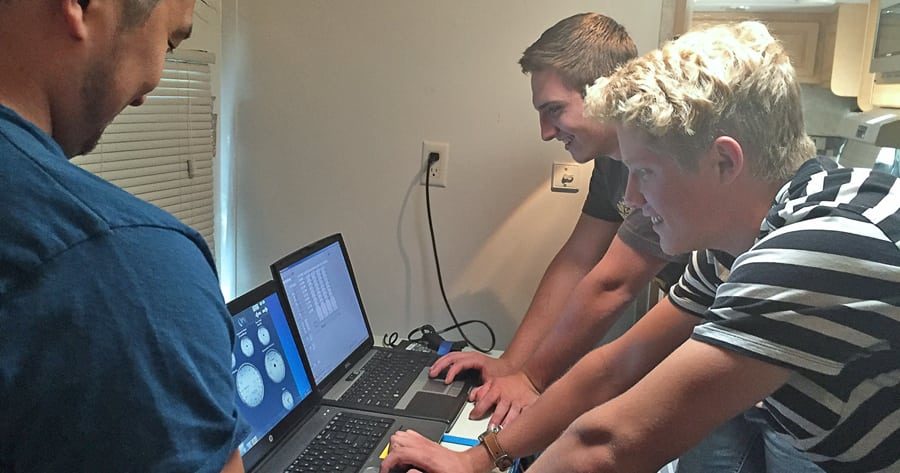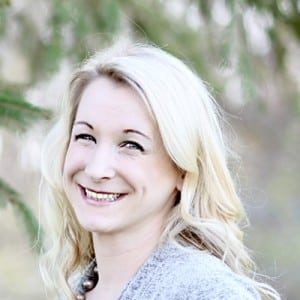
Home » Companies unite to create internships, build up work force
Companies unite to create internships, build up work force

September 16, 2016
RJ Lee Group and TerraGraphics Environmental Engineering have formed a strategic partnership to prepare college students entering the science and engineering work force by offering opportunities right on campus.
Richard Westberg of TerraGraphics is the lab director for the collaborative analytical laboratory on Columbia Basin College’s Pasco campus. With the baby boomer work force retiring, Westberg said it’s vital to enhance student experiences in the sciences to make them more competitive in the job market.
“The ultimate goal is to develop a sustainable internship program that provides student outcomes we can all be proud of. We’ve had a lot of success with students over the years here, but we’ve had trouble developing a sustainable program,” he said. “The presidents of the companies had collaborated on projects previously, so it was logical for TerraGraphics to continue to work with RJ Lee Group.”
RJ Lee Group has had a presence on the CBC campus since 2002. The CBC analytical lab is part of the Lee R. Thornton Center for Science. On the east end of campus, across from the Best Western, it spans about 19,000 square feet. Work there includes analyzing samples for Hanford tank farm and plateau remediation, in addition to various environmental companies and analytical firms.
“We’re looking at lead for school districts right now,” he said. “We looked at samples from the Yakima School District, and we’ll start running samples for the Kennewick and Pasco school districts.”
Westberg worked for RJ Lee Group from 2002-07, back when the company built the lab in collaboration with CBC. He also worked for Mission Support Alliance before joining TerraGraphics. When the partnership between his company and RJ Lee was formalized in May, it ultimately led him back to CBC and the lab he’s familiar with—and the students he wanted to serve.
“It’s fun being around kids who want to learn,” Westberg said.
Being on a college campus is like a second home to Westberg, whose dad was a faculty member at Washington State University from 1972 to 2006.
“He was in the environmental engineering department,” he said. “I was around the academic environment and learned to run equipment as a kid.”
While RJ Lee Group and TerraGraphics employees do not teach students, they work with instructors on campus. Their primary role is to figure out how they can help satisfy training the next generation of Hanford workers, Westberg said.
CBC President Rich Cummins said he’s excited about the venture.
“We are pleased to be working with RJ Lee Group and TerraGraphics on this endeavor,” he said. “This is a great opportunity for our community and CBC’s engineering and science students to get hands-on experience that will prepare them for the work force.”
Even before the partnership, students were benefiting from RJ Lee Group’s presence on campus.
Taite Rice, for example, was hired as an intern in June 2015, originally to help chemistry professor Todd Rogers.
“Spring quarter at CBC, I was studying in the tutor center when a fellow student mouthed something to me. I pulled out an ear bud and he repeats, ‘Do you want a job at a lab?’ He told me Dr. Rogers was looking for an intern. I had taken chemistry classes from Dr. Rogers, and he ranks top of my list for best professors,” she said. “A few weeks later, I was late to a lab and as I turned the corner, I see Dr. Rogers. I walked up to him, shook his hand, and said, ‘I heard you’re looking for an intern.’ A few days later, I got the job.”
Within her first few months, Rice learned how to log samples, answer calls, do invoices, buy office items and help in the lab.
“It was a fantastic set up —always busy and gaining valuable, diversified experience,” she said.
Through the connections at RJ Lee Group, Rice was able to land another internship doing undergraduate research at WSU’s Pullman campus using a machine called a proton transfer reaction mass spectrometer.
With the help of TerraGraphics, RJ Lee Group can reach more students like Rice.
If a professor has a student they believe might be interested in interning, they’ll send them in the direction of the lab. This past summer, Westberg said they had six interns and they plan to start the fall quarter with four.
“They’ll clean sample containers, certify them, do field work, put notes in the logbook,” he said. “Before they can actually do any work for our customers, they’ll need to get the appropriate training. Once they’re signed off, we can put them to work. We’ll keep the student in the lab for a quarter and help them get some valuable experience. We struggle a little in the winter because lab work slows down, but we’re focusing on developing sustainability.”
Local News Science & Technology
KEYWORDS september 2016





